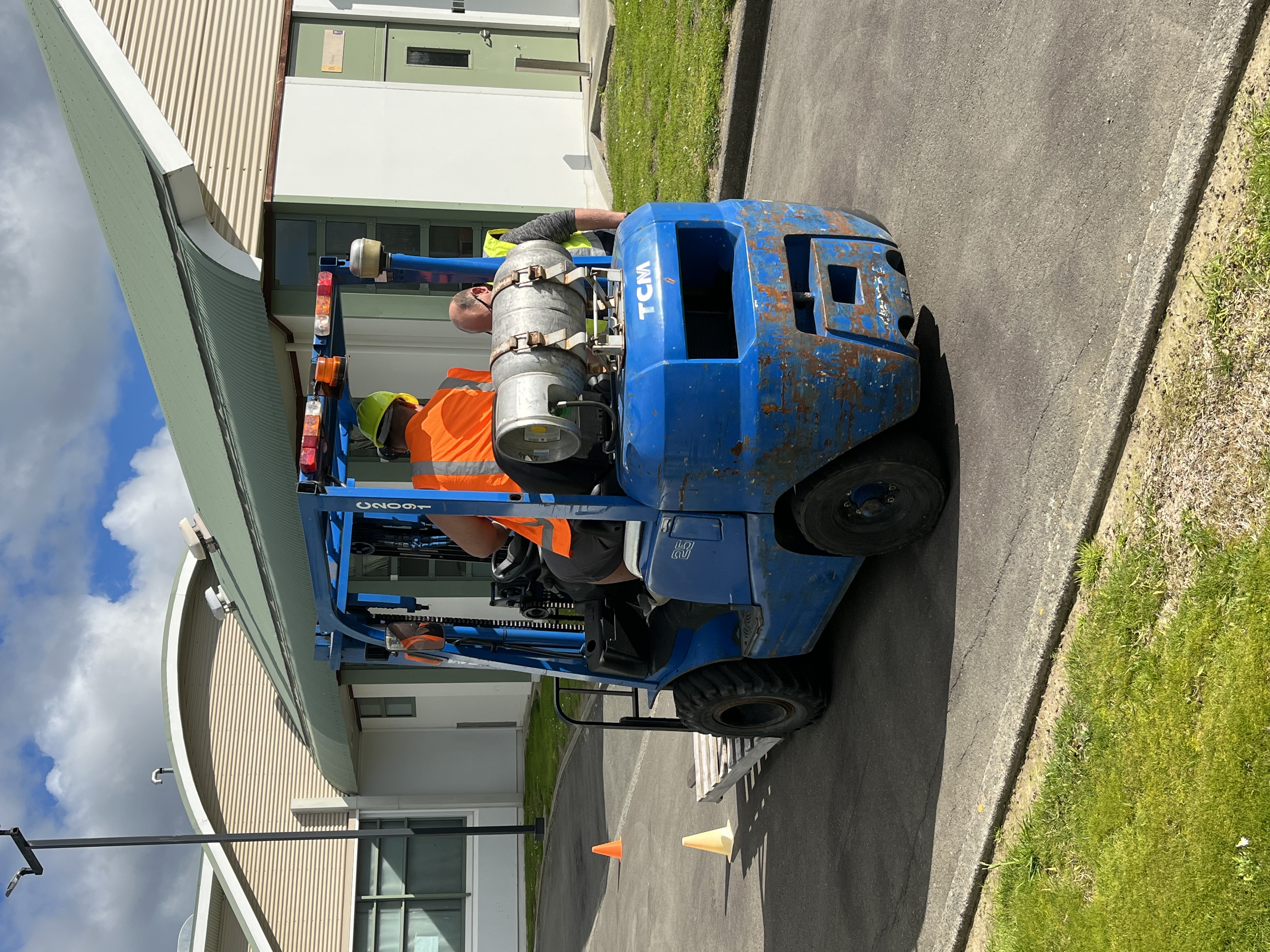Forklift operation is one of several vocational courses offered to young residents, and it can provide a pathway to meaningful employment for some.
“They’re nervous at the start. It’s a big, five-tonne machine and they all think they can drive but as soon as they sit on it, they’re scared,” says Te au rere Employment Coordinator, Kahn Fotuali’i.
Those nerves are on display as 1 young man climbs into the seat. All the bravado he displayed after passing the theory section of the course has gone.
“I’m nervous,” he admits.
The practical element of the certificate takes about half an hour and involves a range of driving techniques as well as lifting a pallet around the course.
They complete this under the watchful eye of an instructor and their youth workers, to ensure their safety.
Vocational training
Rangatahi at the Palmerston North residence are offered a range of vocational courses, alongside the more traditional education.
Staff from the Central Regional Health School also help them to sort out bank accounts, IRD numbers and their driver’s licences – everything they may need to be employment-ready.
“The school also does their CVs. Once they get their certificates through the vocational courses, they get updated,” says Kahn.
But however ready the young people are for work; businesses aren’t always ready for them.
“Probably the biggest challenge is businesses having an open mind,” says Kahn.
Booth’s Logistics
One business with an open mind is Booth’s Logistics, a successful, family-owned freight and logistics company with 450 kaimahi across the motu.
Chief Executive Dallas Vince was 14 when he left school and found a part-time job. He wants to give these young people a shot, just as someone did for him back then.
“If you turn up with the right attitude, we will give you a crack,” he says.
Dallas spoke to 8 rangatahi at Te au rere during the pilot programme Mana Motuhake.
Despite regularly working with customers from multimillion-dollar companies, he was apprehensive about speaking with the young people.
“I don’t get nervous. But what did I have that I could tell them? I wanted to be able to relate to them.”
Telling them he made a successful career for himself despite leaving school at a young age, resonated with the group.
“Purely with someone in a high position telling them there are opportunities out there for them. There are people like him, willing to look past it and give these rangatahi an opportunity to move past it,” says Kahn.
Risk and reward
For Dallas, there are risks hiring someone with a past. But there are also rewards.
He recently employed a man on parole who had been in prison for 17 years, and he believes it is vital for people to have a job and a purpose when they reintegrate into society.
“I always tell my guys it’s about giving back. Someone gave me a crack at 14.”
And Dallas was true to his word about giving the young men at Te au rere a shot. Two days after he spoke with them, he returned to the residence and dropped off a bunch of business cards.
Now, he is just waiting for their call.
Forklift certified
The young man who made a nervous start to his forklift training came through with flying colours.
And just in time.
With his release day drawing closer, he says he is doing all he can to position himself for employment.


